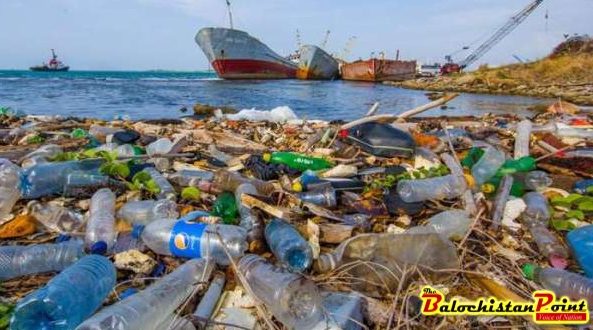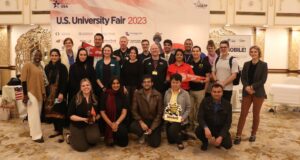ISLAMABAD: Oxfam in Pakistan and its partner Indus Consortium launched a campaign to tackle plastic pollution in Pakistan. Beat Plastic Pollution – the theme for the campaign around World Environment Day 2018, is a call to action for all of us to come together to combat one of the great environmental challenges of our time. The launch ceremony was held outside Savour Foods where Oxfam, Indus Consortium and university students distributed hundreds of environment-friendly cloth bags, to a large gathering in the commercial district of the Federal Capital.
Encouraging public activism, Oxfam in Pakistan’s Country Director Mohammed Qazilbash said the campaign is an effort to shed light on the threats emerging from plastic pollution, “Using an excessive amount of single-use plastics in our daily lives is devastating the environment. Oxfam and its partners have mobilized students, in cloth bag distributions, plastic cleanup drives and tree plantations in Islamabad, Rawalpindi, Multan, Lahore and Karachi to help mitigate plastic pollution in Pakistan. We want to foster a global movement where every individual, policy maker and business takes action against plastic pollution to protect our ecosystem,” Qazilbash said.
While plastic has many valuable uses, we have become over reliant on single-use or disposable plastic, with severe environmental consequences. Plastic bags don’t biodegrade, they photodegrade – breaking down into smaller and smaller toxic bits contaminating soil and waterways and entering the food web when animals accidentally ingest them. Around the world, 1 million plastic drinking bottles are purchased every minute. Every year the world uses up to 5 trillion disposable plastic bags. In total, 50 per cent of the plastic we use is single use.
During an awareness raising stint, environmental activists expressed their views on plastic becoming an environmental hazard in both the rural and urban areas of Pakistan. The simplest plastic normally used in grocery store bags takes at least 100 years to break down while the complex ones take up to 600 years or beyond to decompose. In our cities, plastic bags also choke drains, which results in flooding.
Despite the heat, citizens took a keen interest in the awareness campaign and appreciated the organizers’ efforts. “I very fondly remember that in my childhood we used to use bags made of cloth when going to the market for buying groceries,” said Fatima Rehman, 38, a housewife. “After this reminder, I will start reviving that environment-friendly tradition,” she vowed while receiving her cloth bag from one of many volunteers, pro-environment students of public and private sector universities.
Fiza Qureshi, Indus Consortium’s Programme Manager, said that she hoped people will begin to realize that paper and plastic bags both come at great cost to the environment and instead wondering when the choice came, they will pull a tightly packed reusable bag from their pocket. “We want everyone to remember our message if you can’t reuse it, refuse it and carry reusable shopping bags,” Fiza concluded.
Oxfam and its allies share a desire to make a lasting difference. We work together to address social issues and fight injustices. Whether you want to get active in your community, make your voice heard or you are passionate about a cause – we want you to campaign with us.
Web Desk
Published in The Balochistan Point on June 4, 2018
 Balochistan Point Voice of Nation
Balochistan Point Voice of Nation




